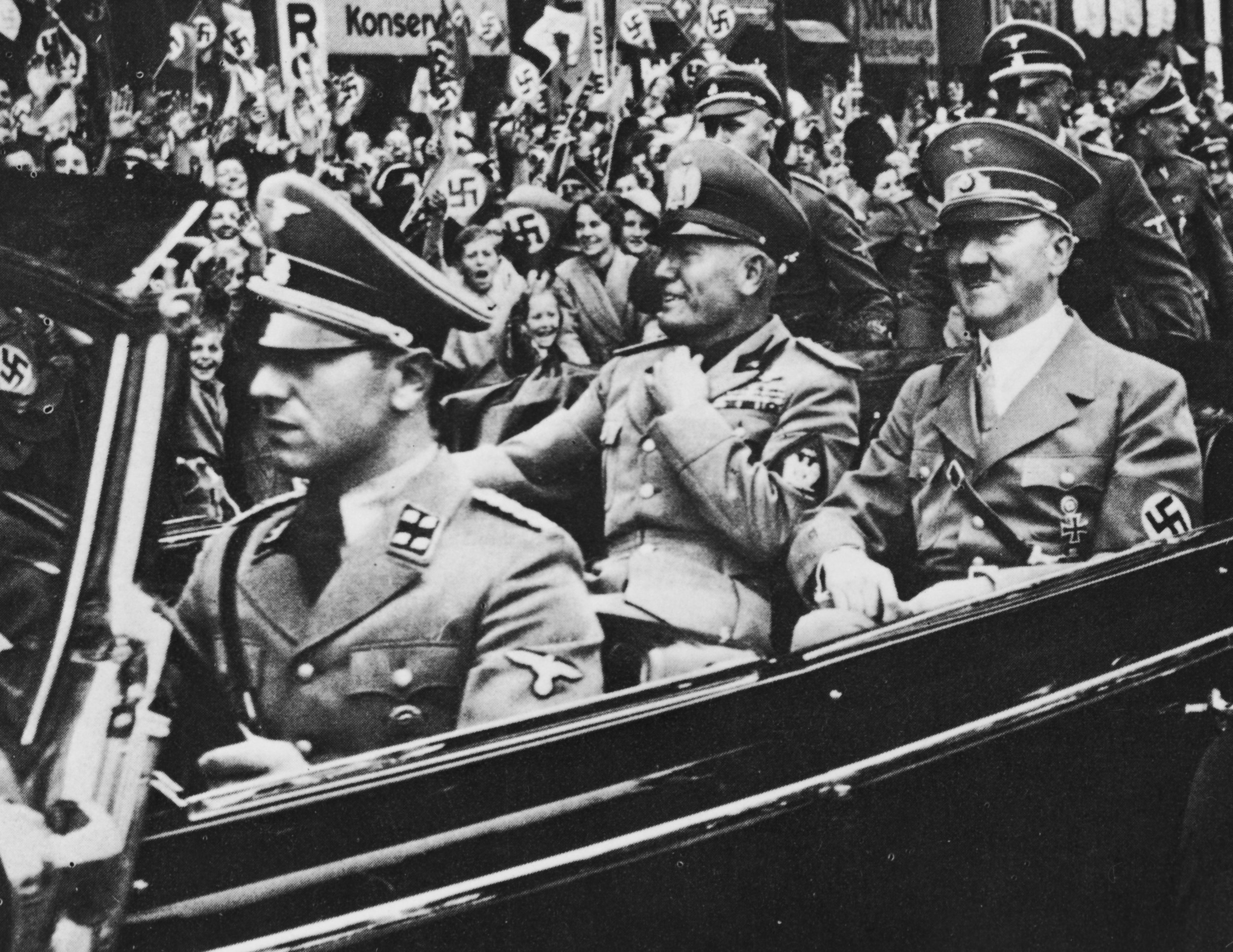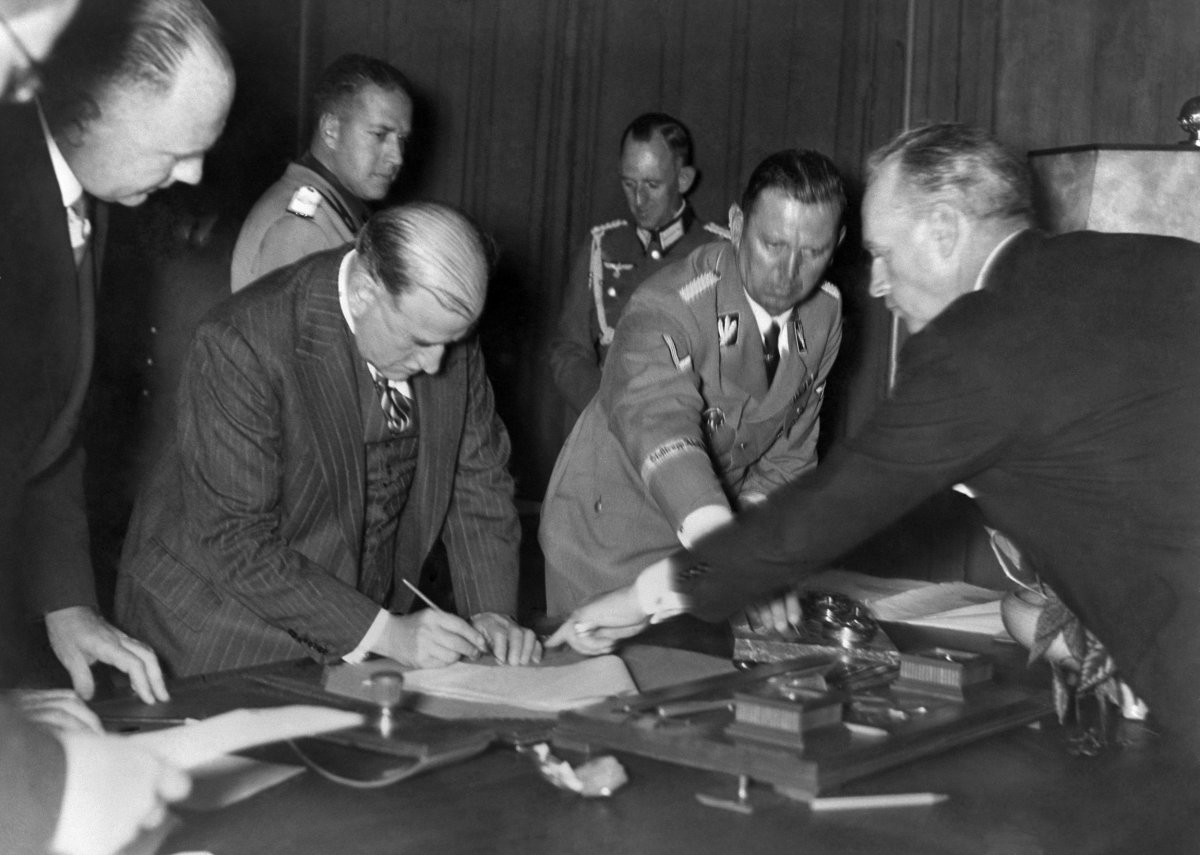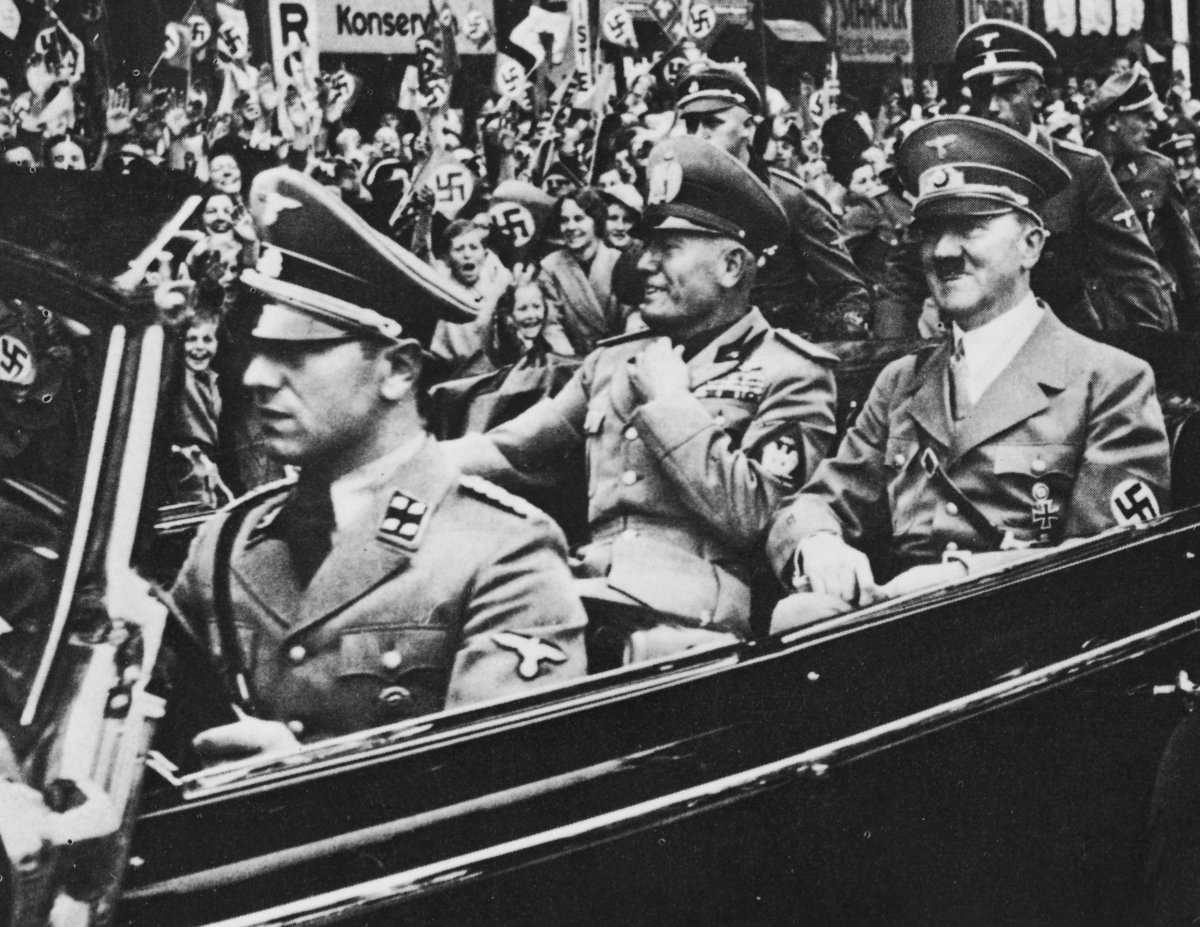
Russia said Monday it blames Western European governments for Adolf Hitler's rise to power and the outbreak of the deadliest conflict in history that followed.
In a statement issued days after the 79th anniversary of the event, the Russian Foreign Ministry said the U.K. and France paved the way for Hitler's fascist takeover of Europe by signing the Munich Agreement on September 30, 1938.
The document—which was signed by U.K. Prime Minister Neville Chamberlain and French Prime Minister Édouard Daladier, as well as fascist allies Benito Mussolini of the Italian Social Republic and Hitler of Nazi Germany—allowed Hitler to annex a strategic region of Czechoslovakia as an appeasement designed to avoid an armed conflict that would ultimately occur anyway.
Related: U.S. war with North Korea could be the deadliest conflict In history, Germany warns
"September 30 is one of the darkest days in world history," the ministry's statement began, referring to the agreement as the "Munich Betrayal," according to the state-run Tass Russian News Agency.
"The heads of the leading Western European countries refused to join forces with the Soviet Union against Nazism and opted instead to appease the aggressor in the hope that this would divert the threat from them and send the German war machine to the East," it later added.

The Soviet Union, then led by Josef Stalin, objected to the terms of the treaty and offered to come to Czechoslovakia's aid, but only if Poland and Romania would allow Soviet troops to cross their territory. Both countries rejected this condition and Nazi forces occupied a Czech territory called the Sudetes. German forces soon after invaded the rest of the country in March 1939.
Indifference to Hitler's goals compelled Stalin to seek a nonaggression treaty with Nazi Germany, known as the Molotov–Ribbentrop Pact in September 1939. The agreement effectively divided Poland between Nazi Germany and the Soviet Union and pledged peace between the two forces. This similarly ill-fated agreement, however, has been defended by Russian President Vladimir Putin himself.
"Serious research must show that those were the foreign policy methods then," Putin said in 2014," according to The Telegraph.
"The Soviet Union signed a non-aggression treaty with Germany. People say: 'Ach, that's bad.' But what's bad about that if the Soviet Union didn't want to fight, what's bad about it?" he added.
Nazi Germany would go on to scrap this treaty and suddenly attack the Soviet Union in an infamous surprise attack known as Operation Barbarossa in June 1941. Months later, the Japanese Empire attacked the U.S. naval base at Pearl Harbor, Hawaii, drawing a reluctant U.S. into the war that December. The U.S. sent millions of soldiers to fight in the Pacific, Europe and North Africa, proving victorious in each front.

The Soviet Union faced significantly more casualties throughout the war than all other countries combined, but managed to beat back invading German forces and storm the Nazi capital of Berlin, putting an end to Hitler's Third Reich, but not his fascist ideology. As recently as Saturday, fascists and anti-fascists clashed in the Swedish city of Gothenburg during a far-right rally organized on the Jewish holiday of Yom Kippur, evoking painful memories of the six million Jews across Europe killed during the Holocaust.
Leaders of both the U.S. and Russia, geopolitical rivals ever since the end of World War II, have warned of growing far-right trends across Europe and have been accused themselves of employing tactics used by their former mutual foe.
Uncommon Knowledge
Newsweek is committed to challenging conventional wisdom and finding connections in the search for common ground.
Newsweek is committed to challenging conventional wisdom and finding connections in the search for common ground.
About the writer
Based in his hometown of Staten Island, New York City, Tom O'Connor is an award-winning Senior Writer of Foreign Policy ... Read more
To read how Newsweek uses AI as a newsroom tool, Click here.








